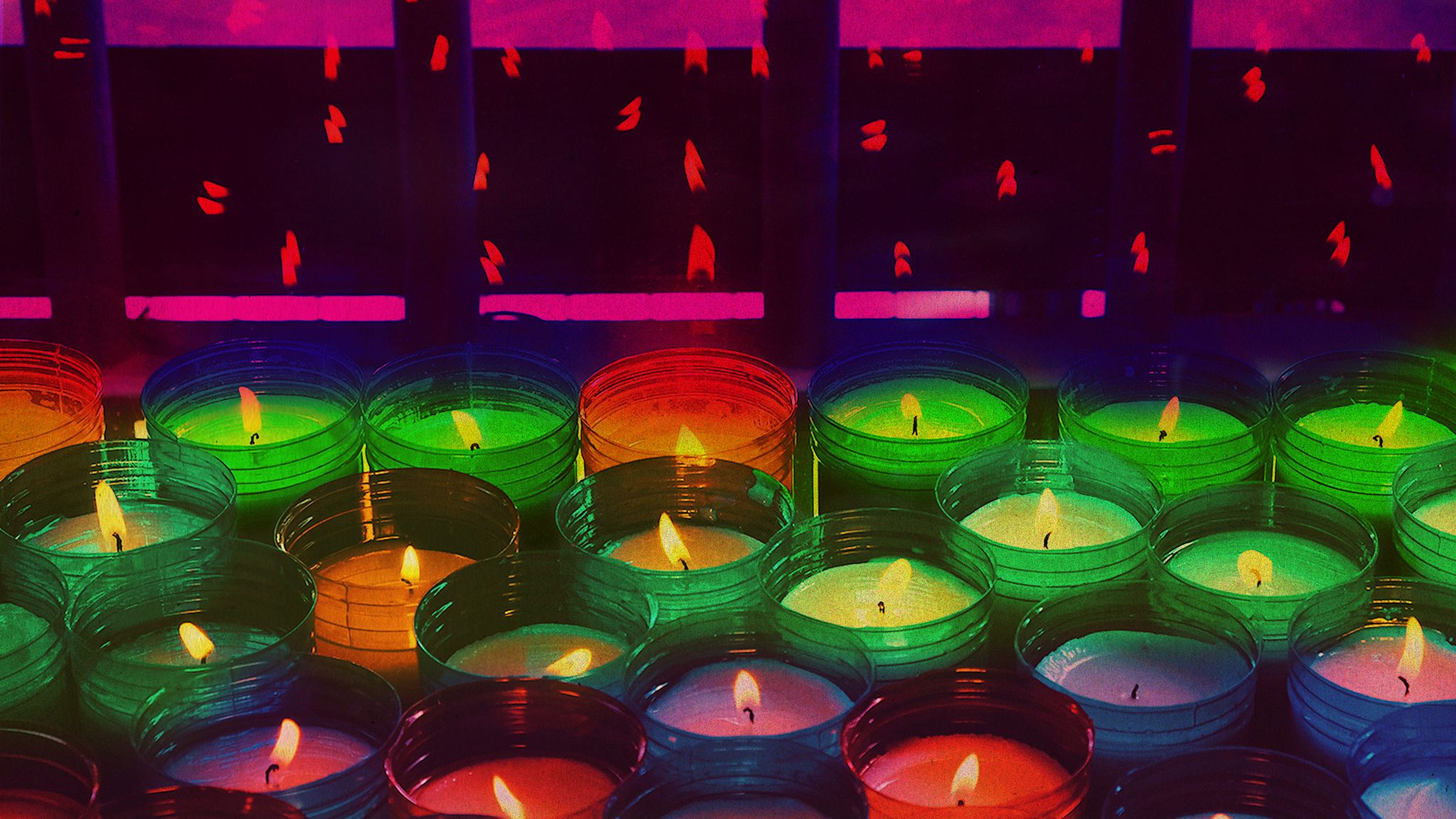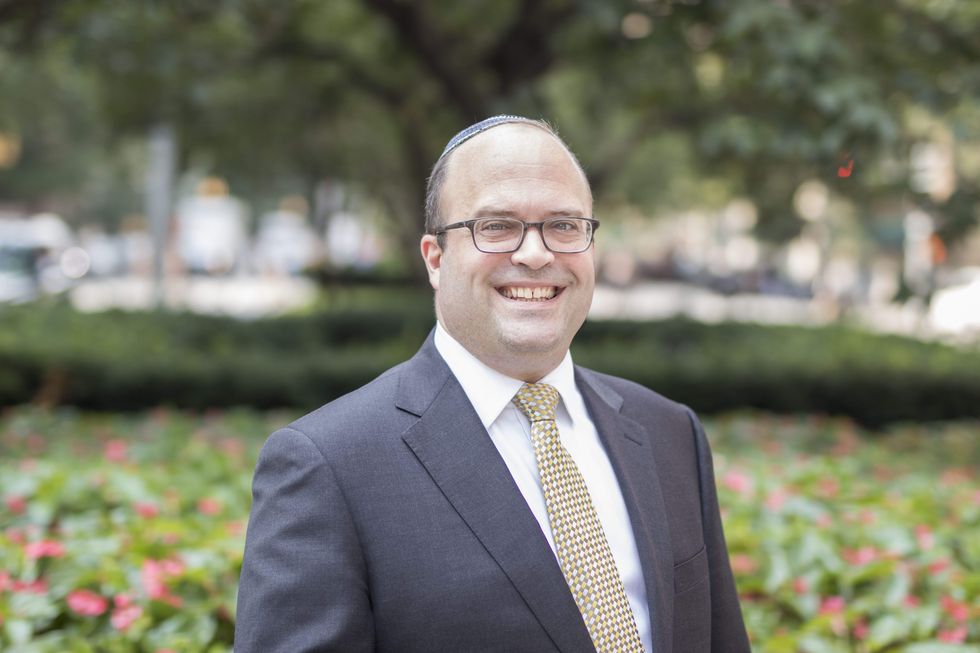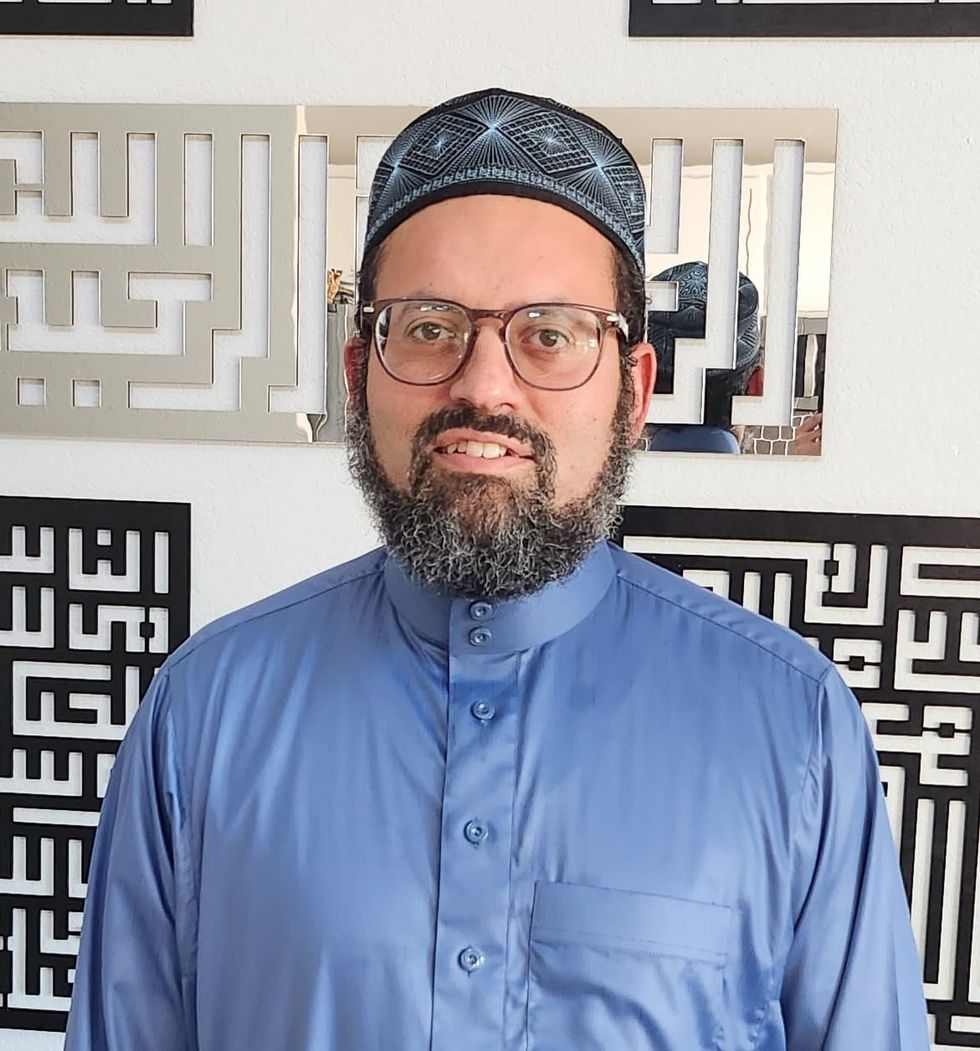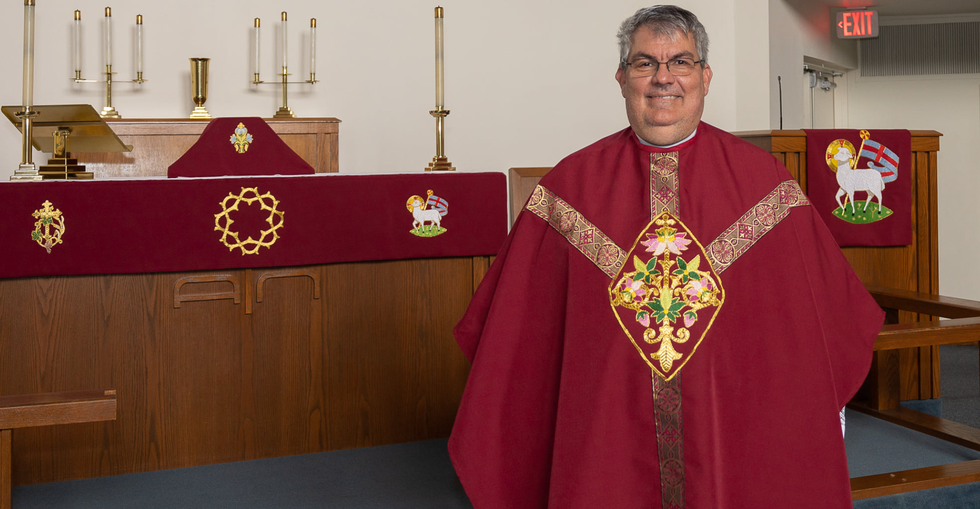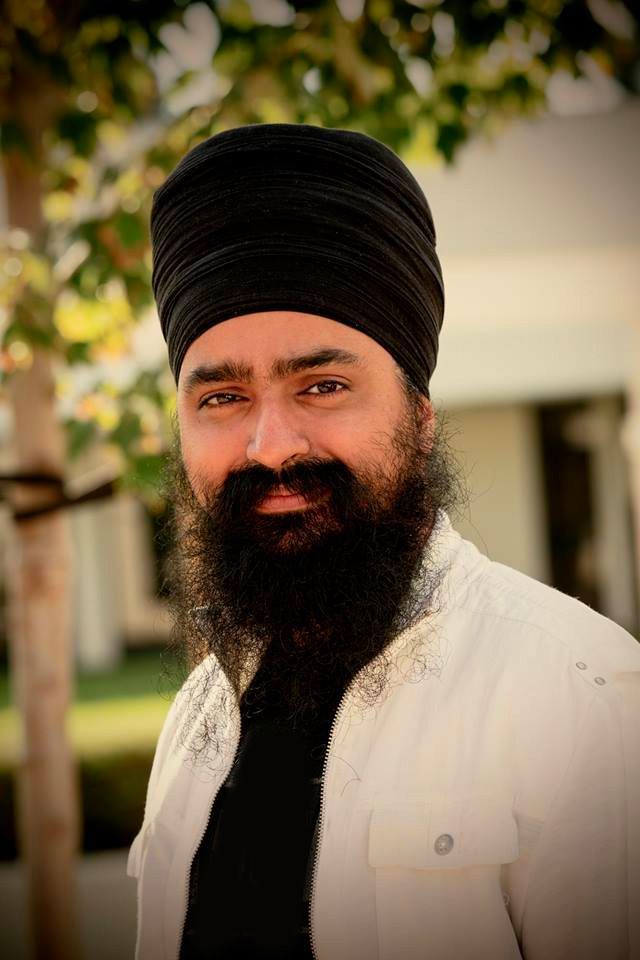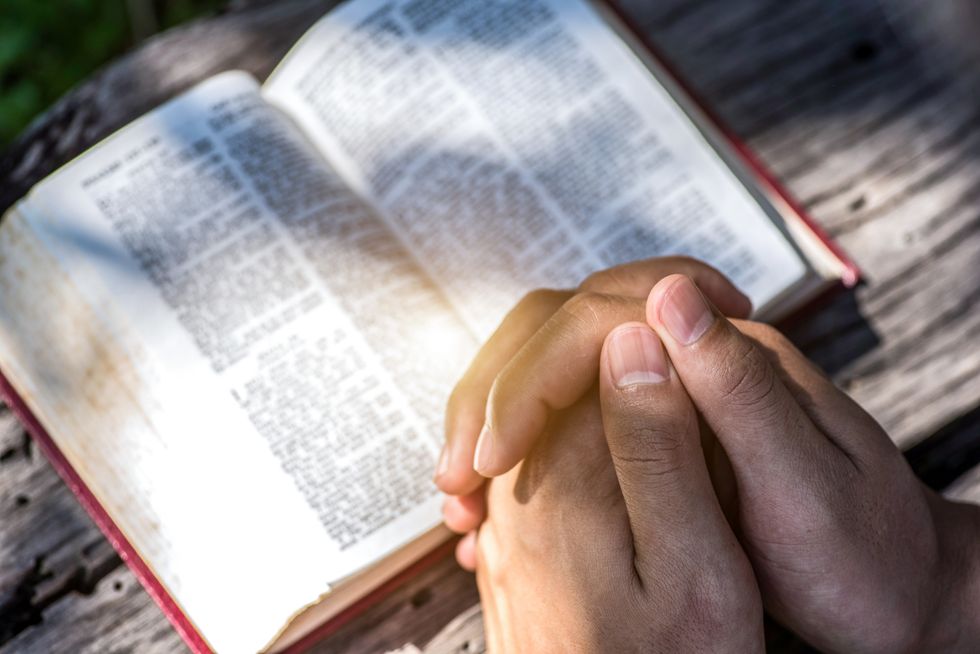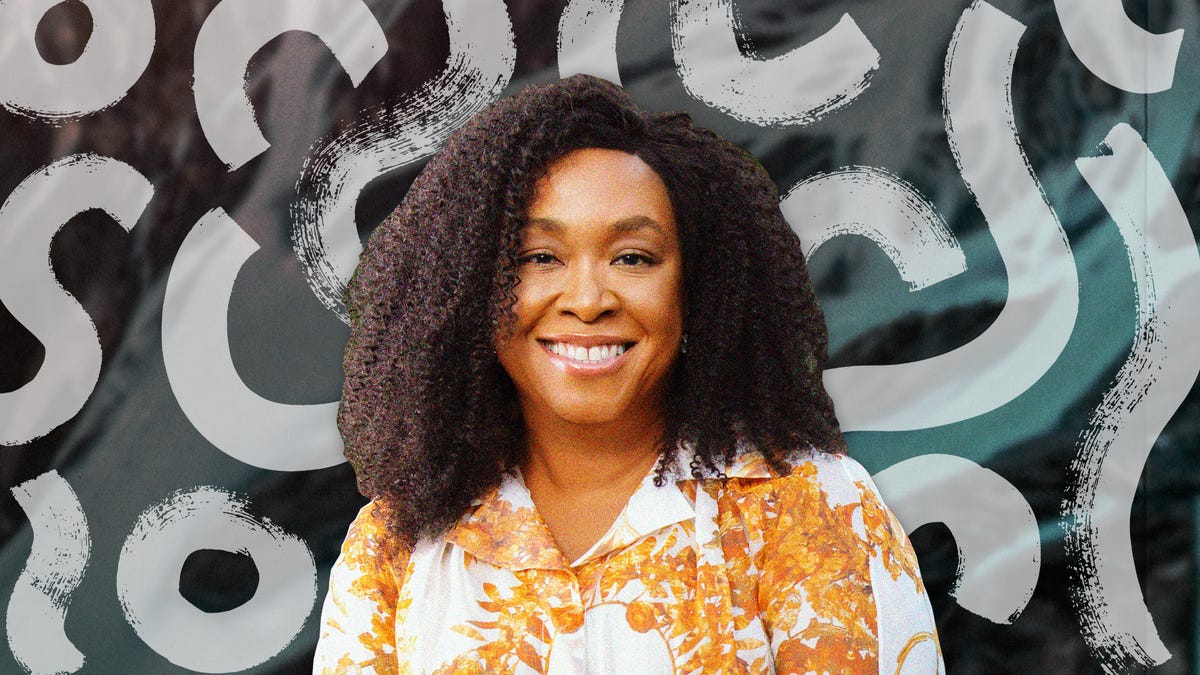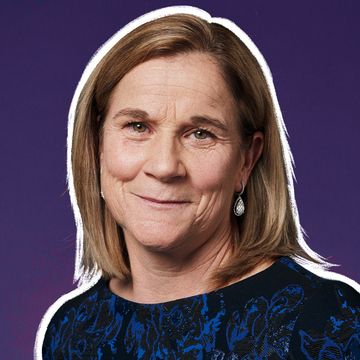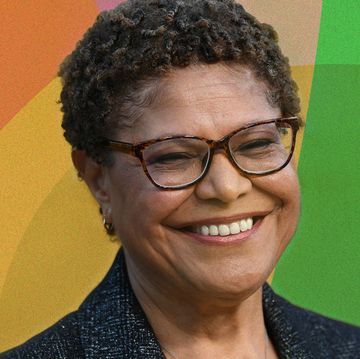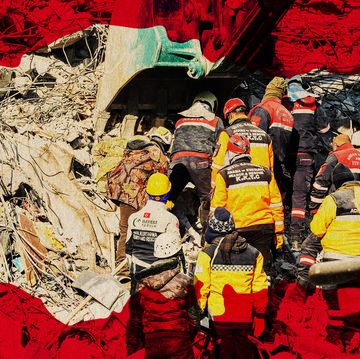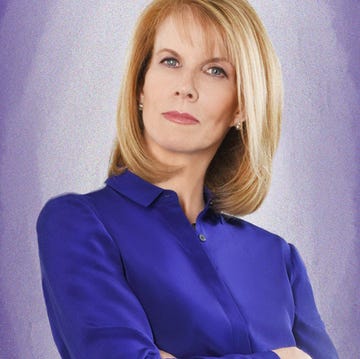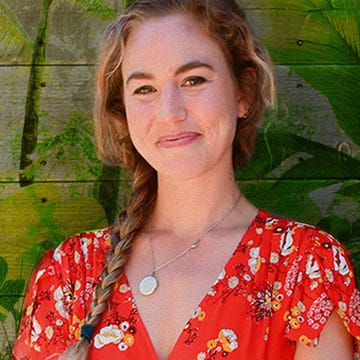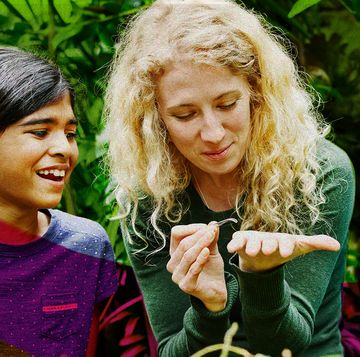No one can deny that we’re living in difficult times. In the United States, the Covid-19 pandemic rocked a country that was already deeply divided along political lines, marred by frequent gun violence and struggling with substance abuse issues on every level of society. That’s not to mention the growing disparity between the rich and the poor as well as the bleak future that many see in store for the planet due to climate change.
These problems seem to affect religious people in two ways: They either embrace their faith and become stronger in it, or they question it. Keeping the faith can certainly be a challenge in the face of so much negativity. Questions naturally arise about why bad things are happening to good people and why God wouldn’t intervene amid such struggles.
To take the temperature of today’s religious communities, Shondaland spoke to four faith leaders across the country, representing different beliefs, about how to keep the faith.
Elie Weinstock leads the Jewish Center of Atlantic Beach, a modern Orthodox synagogue in New York, as senior rabbi. The husband and father of four is also the 66th president of the New York Board of Rabbis. Previously, he received his rabbinic ordination from Rabbi Isaac Elchanan Theological Seminary and led a temple on the Upper East Side of Manhattan for 17 years.
Born and raised in Austin, Texas, Islam Mossaad is an imam at North Austin Muslim Community Center. In addition to a lifelong education in Islam from various scholars nationwide, he has also worked in engineering. Married with two children, Mossaad serves as a public speaker to educate the Austin community — and beyond — about Islam.
As pastor of Joy Lutheran Church ELCA in Palm Bay, Florida, Reverend John David Bryant takes a service-minded approach to Christianity and encourages his congregation to do the same. A passionate evangelist, he brings experience in management, finance, teaching, and counseling to his position at Joy Lutheran, which began with a congregation of just six families in 1983. The husband and father of two received his master of divinity from Lutheran Theological Southern Seminary.
For the past 10 years, Aman Singh has volunteered as a preacher and teacher at the San Jose Sikh Gurdwara in California. Founded in 1984, it has grown to become the largest gurdwara (Sikh temple) outside India, hosting upward of 10,000 people for Sunday services. Previously, Singh received his education from scholars of Damdami Taksaal, a religious Sikh university, in Punjab, India. The husband and father of one is also a software engineer.
CHELSEA GREENWOOD: What kinds of issues are challenging your congregants’ faith the most these days?
ELIE WEINSTOCK: Faith ebbs and flows and is a very personal experience. These days, there is a kind of spiritual PTSD as people grapple with emerging from the pandemic, as well as all the events that transpired the last few years. So much has happened in such a short time period that people haven’t had a chance to properly process, grieve, or make sense of things. This all can create a challenge to faith, should people reflect and look back. Then there are the usual challenges to faith: difficult financial or personal circumstances and the question of why bad things happen to good people.
ISLAM MOSSAAD: The common challenge is people’s presuppositions and stereotypes when it comes to Islam. It is the most misunderstood religion, even by intellectuals who are well-read and who are worldly wise. There is a very active propaganda machine against Islam and Muslims.
On a more personal level, a lot of what I deal with are parents who are concerned about their kids in the school system being bullied. It’s still culturally acceptable. It’s probably the last group where it’s culturally acceptable to be the butt of jokes and all kinds of hurtful things which other people may think are funny. But a Muslim student will internalize within themselves, and it’s unhealthy.
As an imam, what I see day in, day out that really is concerning to me is the amount of substance abuse that is taking place amongst teens and young people, very terrible stories of overdoses. And it seems like it’s getting out of control in a lot of sectors in American society.
JOHN DAVID BRYANT: General fear about the direction of the United States government, fear about the economic downturn and how it impacts the ability to afford meds, fear of terminal illnesses like Alzheimer’s disease — those are near the top of everyone’s chart.
AMAN SINGH: There are a few issues our congregants face today which challenge their faith. One of the most challenging of recent times has been the Covid-19 pandemic. The gurdwara had to push back and limit people congregating — something which was part of people’s daily life either as congregants or sevadaars [volunteers]. In addition, the pandemic took the lives of many loved ones, and particularly in times of such despondency, it can be hard to keep faith. It can make people question the validity of a deity or higher power. When that happens, many do seek answers from a place of worship such as the gurdwara, but it was difficult during that lockdown period as they did not have easy access.
For youth, many find it challenging to be able to freely practice their religion in a Western country. The Sikh identity, particularly the keeping of uncut hair, is often misunderstood by others and can lead to issues at schools that result in Sikh youth feeling pressured to cut their hair and giving up their Sikh identity. This drives away youth further from their faith.
CG: In what ways do you encourage people to keep the faith if they’re feeling unsure?
EW: People need to practice their faith. It’s like exercise. It takes time, focus, concentration, and effort. I encourage people to act upon their faith: pray, worship with others, disconnect from the craziness of everyday life. I also encourage developing a sense of humility. Sometimes, we are angry, anxious, or fearful because we make a big deal of issues that aren’t all that important or we take ourselves too seriously. People need to remember that, whatever the issue, there is a big world beyond us, and the particular challenging moment or setback is one moment in time. There’s more out there.
IM: So, the first thing is we would remind them that the meaning of Islam is submission to none other than our creator, submission to none other than God. That’s what Islam means. It’s not named after a person or a place. Then, we want to let them know you have a community. You have brothers and sisters. And our environment and the people we choose to surround ourselves with have a direct proportional effect on the state of our faith.
We use a word in Arabic, iman, which some would translate as conviction, a little bit stronger than faith. This is directly connected to community and specifically the quality of love with a community. There’s a saying of prophet Muhammad, peace be upon him, who came about 600 years after Jesus, peace be upon him. He said, “You will not enter paradise until you believe, and you cannot believe until you love one another. … Spread the greetings of peace amongst yourselves.” So, that indicates that you’re not in this; you are part of other believers who, also, their faith can increase and decrease. But altogether, by coming to the mosque, by sitting with each other to study the Quran, our holy book, by doing the five daily prayers or whatever you can do in congregation, all of this helps to give light and warmth within the heart and clarity also in the mind.
JDB: I ask them to describe how they managed such feelings in the past, then encourage them to employ those management strategies in the present. I lift examples in Scripture of similar challenges and how those in the text managed such feelings during those challenges. I encourage members to consider adopting the management techniques illustrated in Scripture. I encourage them to talk openly about their feelings with others who will not judge them, discount their feelings, or attempt to fix them.
I pray with them and remind them that God is faithful, and that God meets us in our issues to keep our issues from destroying us. In such spaces as these, God often further matures us, and God does work purpose in, with, and through what often feels scary and looks rather bleak.
AS: We encourage people to recognize and celebrate their individuality in this world. That everyone is unique from one another and that, as our gurus taught us, everyone has a place in the world, and the time given to us here is not a second more or less than needed. We encourage people to take care of their mental and physical health, to recognize that the eternal light of God is not in the skies or heavens but is within them, even when they feel unsure.
It’s important for Sikhs to not keep bad company of people who will bring them down or bring about negativity in their life, so we encourage Sikhs to get together at the gurdwara as much as possible. For this, we aim to organize many different events at the gurdwara to bring people to congregate regularly, holding events for young children as well as adults.
Although we use the word “faith” when talking about God, we encourage our congregation to use the word “realization” instead. To have faith or to believe in something means you are not completely sure that it exists. For us, the entire universe, and the miracle of life within it, is for us to realize that there is a Creator behind it in some form, and you don’t need belief to realize that. Being able to realize that helps you overcome anything, knowing that God is there with you and within you.
CG: What are some actions someone can take if they’re feeling shaky in their faith?
EW: Prayer is an effective ritual to express and develop faith. In Judaism, there are three prayers a day to encourage people to invoke God and their relationship with God throughout the day. When prayers are recited seriously and not hit by rote, they give us an opportunity to hear ourselves express our faith, gratitude, and aspirations. It shouldn’t be simply reciting words. It should be a conversation with God in which we listen to ourselves and take part in the dialogue.
IM: I would encourage them to pray. There is also a prostration where we actually put our face on the ground in prostration to God. And so, this is a very focusing moment where we are the closest to God in that moment. And for many Muslims, including myself, this is a time of great clarity because we are bringing the ego all the way down. We are bringing this humility all the way down. And this is where the gates of truth are opened up and you can see more clearly.
JDB: Plug into a support group for those dealing with similar challenges. Get comfortable with not finding black-and-white answers. Come together with others rather than isolate. This can be done through regular worship participation, through volunteerism, and in other ways that can keep us connected to others. Seek clergy-guided reading from a qualified cleric and spiritual direction from a credentialed spiritual director. Journal about your feelings. This often clarifies what we think we feel from what we actually feel. Review this with your spiritual director or local clergyperson. Keep in mind that feelings come, and feelings go. They are not the best measure of faith.
AS: We encourage people to visit the gurdwara as much as they can and not only listen to the sermons but to volunteer themselves for service, such as feeding others in the langar, a free community kitchen open to all. We encourage living the Sikh way of life, including praying at least three times daily, but also to remember God with every breath throughout their day. That means in our daily lives, in everything we do and say, we remember God before taking any action. This helps us to remember to earn via honest means and to treat others with love and respect and to do everything within our means to help others selflessly and without prejudice. Our gurus have taught us that living an honest life and doing good in the world helps strengthen our faith and bring about positivity in our lives through karma.
Reading the Guru Granth Sahib, Sikh scriptures, helps in strengthening our spirit and helping us understand our place in the world. It provides us with guidance through all emotions, such as depression, loneliness, heartache, anxiety, and more. The scriptures are integral to our way of life, providing us with guidance at every level and giving us answers to problems we face daily.
CG: What does faith mean to you on a personal level?
EW: For me, faith is an experience. It is a constant presence, but there can be times when I don’t engage with it actively. There are moments of intense faith and religious fervor and sometimes moments when I feel less connected and distant. I try to be present and aware of the ebbs and flows, and to feel as connected as often as possible: good days and less-good days, ecstatic moments and ordinary moments, and always faithful moments.
IM: For me, it’s life. Coping, without conviction and faith in my life, would be very hard. It also invigorates me. It gives me not just a sense of purpose but connectivity to people all over the world. And not just Muslims but also people who are also believers in the same one God, even though we have our particular differences, but deep down, we are believing in this one God, especially between Muslims, Jews, and Christians.
JDB: Someone in a family dear to me has committed suicide fewer than 36 hours ago. I spent yesterday morning on the phone with a sibling of the victim. Faith was not having explanations and answers, not offering trite platitudes or high churchy idioms. It was sitting in the pain of it all while trusting that God is faithful to love everyone and everything on all sides of the tragedy and is faithful to redeem the pain. That God is love, and love will be the final word on all our sordid human experiences. As [novelist] Anne Lamott writes, “It’s about choosing to believe this one thing, that love is bigger than any grim, bleak s--t anyone can throw at us.”
AS: My faith is at the core of my life. Getting up in the morning until lying down at night, I try to see that light of God within me before I say or do anything that may hurt someone else or that may be wrong. Our guru, our spiritual guide, is in the form of the Sikh scriptures that are written in the form of poetry through thoughts. I try to instill those thoughts into my own thinking so I may try to subconsciously think, and therefore live, the way our gurus intended us to.
There have been times that have been hard in my life, and I know there will be more, but I keep my faith close to me during those times as well as through times of happiness. My faith to me does not mean constantly praising a god. To me, it is about meditating and getting in touch with a higher power that lives within me as well as within everything around me. It is about recognizing that light within all, regardless of their religion, gender, sexuality, etc. My faith is personal, and we are taught to never impose our religion on anyone else.
CG: Can you recall your most recent or greatest crisis of faith? How did you overcome it?
EW: I think Covid-19 was a challenge to my faith. There was just so much uncertainty and disruption. As someone whose faith and religious experience are interwoven with a routine — prayer, calendar, synagogue community — the disruption was palpable and, at times, painful. What helped was to pivot to new forms of engagement and connection, finding deeper meaning from the religious experience of the home and in smaller settings. Also, an extra effort to be helpful to other people.
IM: There were two of them. I went to the University of Texas, and a lot of these professors are unabashed in their atheism. And they kind of look at religion from a point of arrogance. So, as an 18-year-old in a lecture hall with 300 other students and this professor articulating what he thinks is the way the world is, it forces a person to say, “Why am I a Muslim? Why do I believe, first of all, that there is a God? How do I know that Muhammad, peace be upon him, was not delusional and didn’t really receive revelation?” So, all of those questions, all they did was prompt me to read and study and reflect and meditate, and that caused a lot of growth. So, a lot of times, these crises will produce growth.
And then the other major one was 9/11. So, my name is Islam. I mean, it’s the name of the religion. That’s the name my parents gave me. And I love Austin. I grew up here, and all of my memories are connected here to the United States, even though my parents did come from Egypt back in the 1970s. I’m a Muslim, and the 19 people who crashed the planes into the Twin Towers also were Muslim. There were so many inherent contradictions, and it was a very emotional time. We were afraid for ourselves and for my two sisters, who wear the headscarf. At our private Islamic schools, we had to have police on campus parked outside very visible just to make sure nobody did anything.
So, that was very much a crisis moment for me. I had to reconcile the inner world as well as the outer world. And what I came to the conclusion was: I am Muslim. I am American. What I stand for is truth and justice, wherever it is. So, 9/11 was a strong push for me to become an imam full time, helping to do my best to explain Islam to people all around.
JDB: On October 27, 1987, midway through my senior year in high school, my great-grandmother died suddenly. Within six weeks, her daughter, my grandmother, was diagnosed with stage 3B breast cancer. Since the fall of 1987, holidays have never been the same. Between 1987 and 1990, I warred against God, rejected faith, wounded others out of my pain, and tried to use sex to numb the pain out of existence. Still, no matter how faithless, hurting, and angry I proved, God proved more faithful, more healing, and more loving than one can imagine.
I encountered a clergyperson who listened to me, who prayed with me, who absolved me, and who introduced me to what I came to know as “the theology of the cross.” That theology helped me to understand and experience how God meets us within our suffering. God connects with us in our darkness, pain, despair, and isolation to encounter us, to embrace us, and to claim us as God’s own.
AS: Probably the greatest crisis of faith for me was the 2012 shooting at a Sikh gurdwara in Oak Creek, Wisconsin, that left six people dead by a white supremacist. The attack left peaceful, innocent men and women dead due to someone who couldn’t stand the color of their skin, someone who was guided by hateful groups that still exist to this day. It made me and other Sikhs around the world fear for safety at their own local gurdwaras. The whole concept of the gurdwara is to be accessible and open to all to come and visit and pray and for anyone who needs shelter or food, regardless of the color of their skin. It made me concerned for my community and those that come to, and live at, the gurdwara. It initially dampened my faith because it happened in a Sikh gurdwara, a place which for me is a sanctuary and an institution that does so much for the community around it. It made me feel like there is nowhere safe in this world for me.
I immediately traveled to Oak Creek to see if I could help in any way. I saw the community pulling together so strongly, and I remember meeting those who had been injured and witnessed the shooting. They were so strong in their faith, despite the atrocity which had just occurred. Being near them and talking to them gave me hope, and the way that other communities from around the country came together to support them was uplifting. There were many people there who went on to become activists to lobby [for] gun laws and spread messages of positivity in the world. Whilst it may have tested my faith, it left me feeling more determined within myself to do good in the world, and there were many more who went on to do the same. I have learned to find the silver lining in every cloud, to see the good in everyone, and to be there, where and when I can, to make a positive impact in this world.
Chelsea Greenwood is an award-winning lifestyle writer and editor whose work has been featured in InStyle, Teen Vogue, Self, Racked, Vulture, Brit + Co, Sheknows, and Vice.
Get Shondaland directly in your inbox: SUBSCRIBE TODAY
